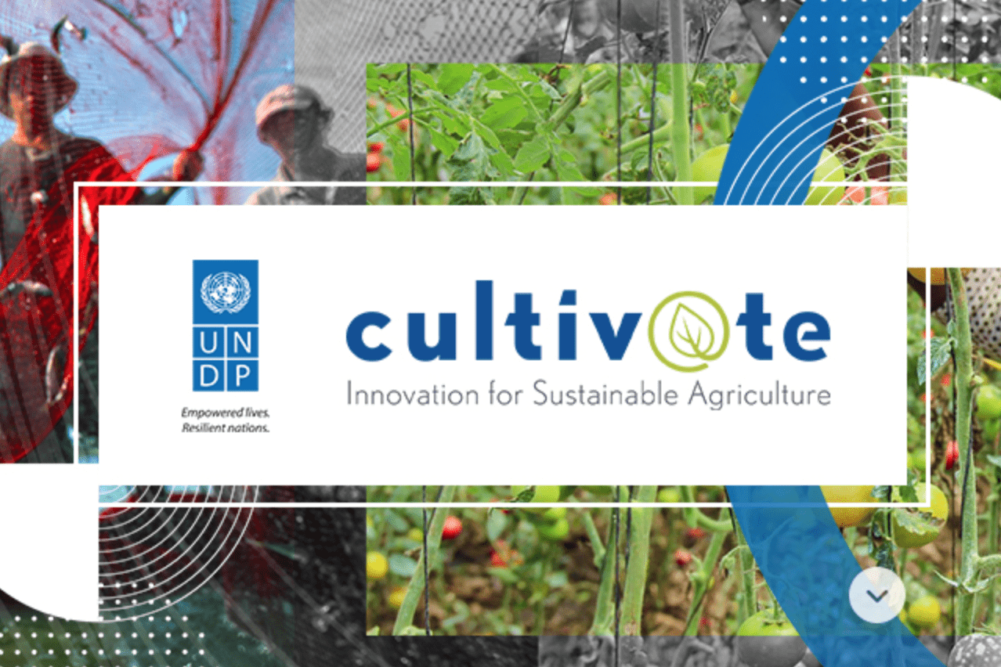The United Nations Development Program (UNDP) is hoping to spur a new wave of innovation tackling some of global agriculture’s biggest challenges. The organization recently launched the Global Centre for Technology, Innovation, and Sustainable Development, which has three areas of focus including the future of food and digital ag. The other two categories are smart cities and sustainable finance.
The Global Centre is the only UNDP center that focuses on promoting innovation and helping countries around the world to adopt new technologies and its placement in Singapore was no accident.
“I think Singapore makes a lot of sense because over the last 10 to 20 years Singapore has established itself as not just a regional innovation hub but a global innovation hub,” director Bradley Busetto told AFN. “The universities, the government backing, the venture capital, and other financing opportunities are all here. It’s been at the top of world rankings in terms of innovation for years and it makes perfect sense. There’s also the incredible development story of Singapore itself.”
Busetto is approaching his role at the Global Centre as intending to not only talk the global innovation talk but walk the walk as well. He is determined to help co-create and apply technologies in target areas that will address global food supply challenges.
To kick things off, it’s hosting the inaugural Cultiv@te Challenge that encompasses 13 of the UNDP program country offices across three challenge areas:
- Urban Agriculture: Singapore, Djibouti, Kenya, Uruguay,
- Rainfed Agriculture: Philippines, Gabon, Ethiopia, Indonesia, Bhutan,
- Livestock Farming & Aquaculture: Uzbekistan, Sudan, Ecuador, and Armenia
As Busetto says, it’s an innovation challenge on steroids.
“We are not looking to solve one problem but to find, prototype, develop, and bring to market new technologies that are born out of problems from the developing world and scale them more broadly,” he explains. “The aim is to spur the identification and scaling up of new technology in sustainable ag space as quickly as possible. That has been an issue for the digital ag revolution. We haven’t really been able to scale so we want to help do that.”
The challenge is agnostic regarding the type of technology involved and the UNDP will not take a stake in any of the selected companies. Right now, it’s focused on attracting as many qualified applicants as possible. It’s already received 789 applications touching on these themes with the top three countries of focus being Kenya, Ethiopia, and Singapore. Applications have been pouring in from around the world.
Today is the last day to apply, so get your application in here!
The first round of startups will be selected by March 21 and the shortlist will be compiled by March 31. The second round of voting happens between April 1 – 10 and the program starts April 10. The program offers investment and partnership opportunities, advice with navigating policy and regulatory barriers, and commercial viability validation on top of prizes. Initially, the program is aiming to select four applicants from each target country to create a sizeable cohort of around 50 companies.
The Cultiv@te Challenge is also seeking additional partners to work with whether they are venture capitalists or corporate entities who want to work with startups as they emerge and provide mentorship.
The challenges facing smallholder farmers are vast and diverse including access to capital, affordable inputs, information about the weather, and solutions to improve crop or livestock health. Although there are startups and entities working to find tech-driven solutions, the scale of the problems leave ample room for many players. But for Busetto, simple, grounded solutions appear to have the most appeal.
“The problem is that cool apps and high-tech gear for farmers int he developed world have no resonance with smallholder farmers in India, Ethiopia, and other places. At least two-thirds of the extremely poor in the world are living in rural areas and are virtually all farmers. They barely grow enough food for their own family supply let alone food to bring to market. Genomics, geospatial data, precision ag, are things that may not be as relevant to them.”





